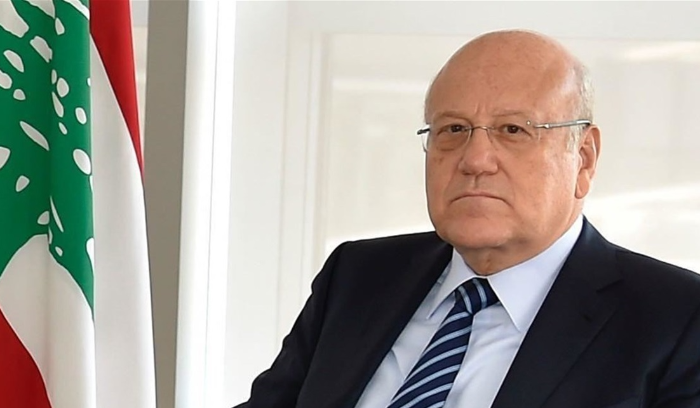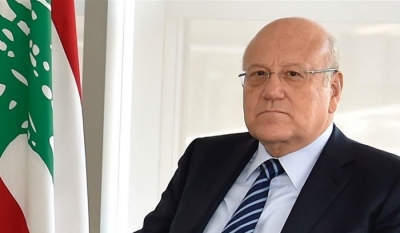The Prime Minister, Najib Mikati, announced that the government is in the process of forming a ministerial committee to visit Damascus to discuss the file of Syrian displaced persons, and this step will certainly be coordinated with the six-member committee emanating from the Arab League. He stressed during his conversation with "Euronews" that "we cannot be accused of racism; what we want is simply to exercise our right to sovereignty over our entire land, and from here comes the decision to deport any foreigner who does not have the necessary legal documents to reside in our country."
He indicated that he has "short, medium, and long-term plans for finding a solution to the refugee issue," saying, "They have been discussed and agreed upon among all Lebanese forces in governmental sessions." He clarified that the plans consist of "nine main points, and I will present them during my visit to Brussels for a conference on the crisis of Syrian displaced persons in June."
Mikati viewed that "Syria's return to the Arab League and the excellent relationship with Riyadh will automatically reflect on Lebanon, as Syria is Lebanon's closest neighbor." Regarding Saudi support for Beirut, he stated: "We have not yet seen any imminent Saudi investments in Lebanon, but there are promises, and if Lebanon returns to its natural relations with Arab countries, it will have a share of these investments." He noted that "the Iranian-Saudi agreement has reduced sectarian tensions."
He emphasized that "no one dominates the Lebanese state, and no one is above Lebanon's sovereignty, and we do not accept the existence of a state within a state; I am the first to criticize any practices that may infringe on the country's sovereignty." Concerning Hezbollah's weapons, Mikati confirmed that he will not allow their use domestically at all, adding, "I am committed to the ministerial statement of my government regarding resisting the Israeli occupation of Lebanese territories." He condemned the recent maneuvers carried out by Hezbollah, stressing that "the solution to this issue is not in the hands of the Lebanese government but requires comprehensive Lebanese consensus regarding Hezbollah's weapons."
Regarding the file of the Governor of the Central Bank, Mikati viewed that "the Lebanese judiciary plays the main role in the file of the Central Bank Governor," stating: "What matters to us is preserving the institutions." He added: "Certainly, it would be easier for us to dismiss Salam now, but who would bear the consequences? Who will take over the bank? Therefore, we should not focus on the person but rather on the institution that must remain a source of respect for the world and for the Lebanese."
He pointed out that "the state should have the courage to say it is responsible for everything that has happened, and then we can discuss holding the state accountable to the Central Bank and commercial banks." He noted that "we have submitted a recovery plan centered around returning deposits to citizens," urging the Parliament to study it "so that matters can stabilize and we can rebuild this sector in modern ways."
Mikati mentioned that the required reforms from the International Monetary Fund have been sent to the Parliament, saying, "We have established a public authority to combat corruption, appointed its members, and it is now fulfilling its duties."




